What can women still not do in Saudi Arabia?
- Published
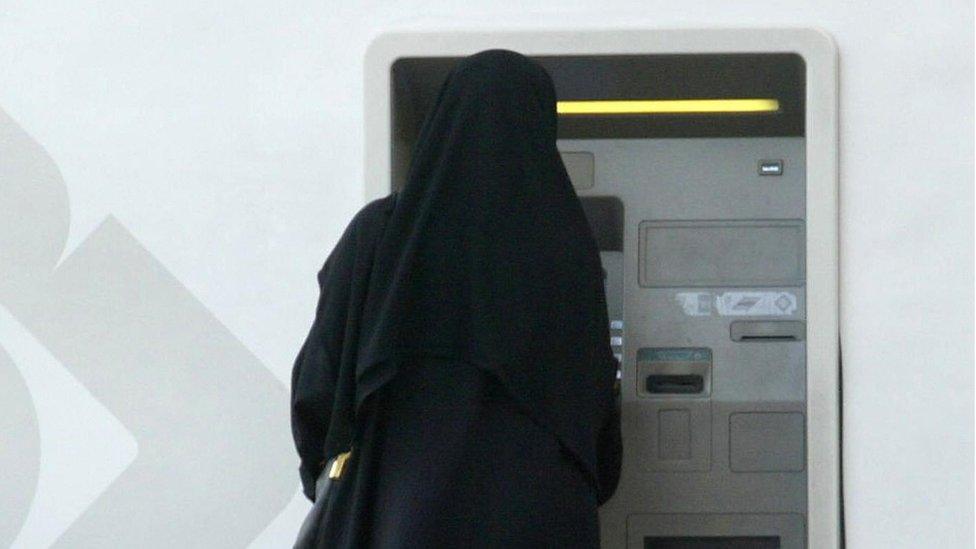
The king of Saudi Arabia has issued a decree allowing women to drive, bringing to an end the country's dubious distinction as the only place on earth banning the practice. But even when that change comes in next June, many things will still be out of reach for women in the extremely conservative country.
There are many things women must ask the men in their lives for permission to do. These things include, but are not limited to:
Applying for passports
Travelling abroad
Getting married
Opening a bank account
Starting certain businesses
Getting elective surgery
Leaving prison
These restrictions are down to Saudi Arabia's guardianship system. Since its foundation, the country has been aligned with a strict interpretation of Islamic law - Wahhabism. After an extremist uprising in 1979, those rules were enforced more rigidly.
It has helped create one of the most unequal countries in the Middle East, according to the 2016 World Economic Forum's Global Gender Gap Index, ranking above only Yemen and Syria, both countries at war.
'A man equals two women'
The guardianship system has been criticised strongly, including by the organisation Human Rights Watch, which said, external it effectively turns women in to "legal minors who cannot make key decisions for themselves".
However, that has not stopped some women in the country campaigning against it - although that is not easy in a country where women will also find it difficult to walk in public without a man accompanying them.
In the justice system, women are openly discriminated against. As is the case in some other countries with a strict interpretation of Islamic law, one man's court testimony is equal to that of two women.
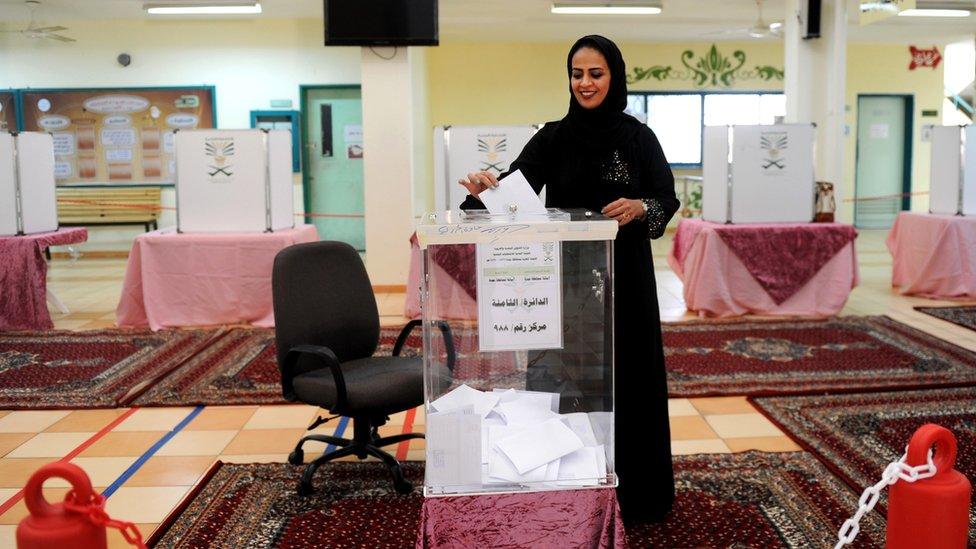
This woman voted for the first time two years ago, when elections were opened to both sexes
It is also hard for women to get custody of children after divorce if the children are older than seven (boys) or nine (girls). This difficulty is further exacerbated if the woman is not Muslim i.e. if she is a foreigner living in Saudi Arabia.
But some aspects of women's lives in Saudi Arabia are less restricted than might be expected.
Women there have been able to vote since 2015. Education is compulsory for girls and boys until age 15, and more women than men graduate from university.
About 16% of the labour force is female.
Yet what they wear to work is not up to them.

Saudi women must cover their bodies completely by wearing an abaya - full-length, loose-fitting robes - in places where they may be seen by men who are not related to them. So there are women-only spaces - specific floors of shopping centres, for instance, where women take abayas off. Outside of those, women not following this rule face being chastised by the religious police.
But there are exceptions: Non-Saudi women are legally permitted a more liberal dress code, and if they are not Muslim they are permitted to not cover their heads.
Foreign women travelling there report having to cover up with an abaya before leaving the airport. But foreign heads of state and first ladies have visited Saudi Arabia without wearing either abayas or head coverings.

Melania Trump (L) and Michelle Obama both wore long-sleeved options from their usual wardrobes when visiting Saudi Arabia, and did not cover their heads
Much of Saudi life is very segregated by gender and this separation is carefully enforced. It can extend to the swimming pools and gyms of hotels used by international travellers.
Other restrictions on women around the world
Few countries are as strict about what women can and can't do as Saudi Arabia, but there are other places where women are banned from certain activities - some of them surprising. These are just a few examples.
China's education ministry prevents women from studying mining, tunnel engineering, navigation and other subjects - a decision it says it has made out of respect for women's safety
In Israel, women cannot get a divorce without their husband's permission as the system is ruled by religious courts. And in one "extraordinarily unusual" case in the UK, judges told a woman who wanted a divorce that she could not have it, because her husband wished to stay married.
In Russia, there is a list of jobs women are not allowed to do, including carpentry, firefighting, train driving and captaining boats. The list was confirmed in 2000, and employers can bypass it if they can prove they have made conditions safe for women - but, in practice, most avoid the cost of doing so.
Women in one Indonesian city have been prohibited from straddling motorbikes when they ride as passengers behind men. The mayor of Lhokseumawe said women should sit side-saddle to save people's "morals and behaviours". The district previously also banned women from wearing tight trousers, external, saying these would be confiscated, cut up on the spot and replaced with a government-issue skirt wherever found.
For women in Sudan, the punishment for wearing trousers, external - considered "indecent" clothing - is lashing.
- Published27 September 2017

- Published10 December 2015
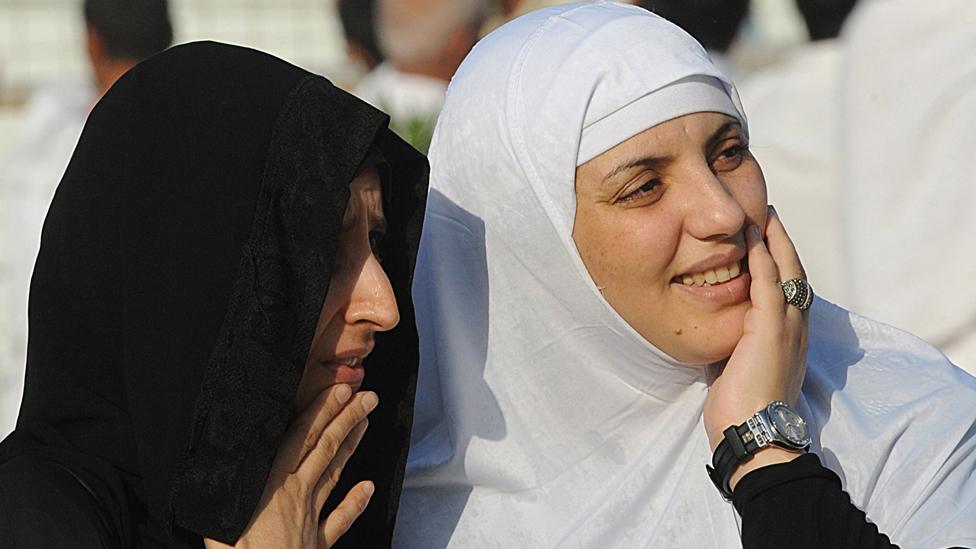
- Published17 October 2013

- Published14 September 2017

- Published3 January 2013
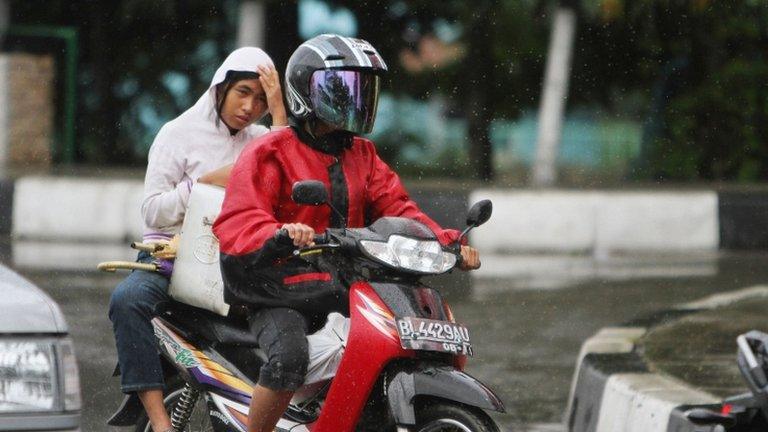
- Published13 February 2017
- Published27 September 2017
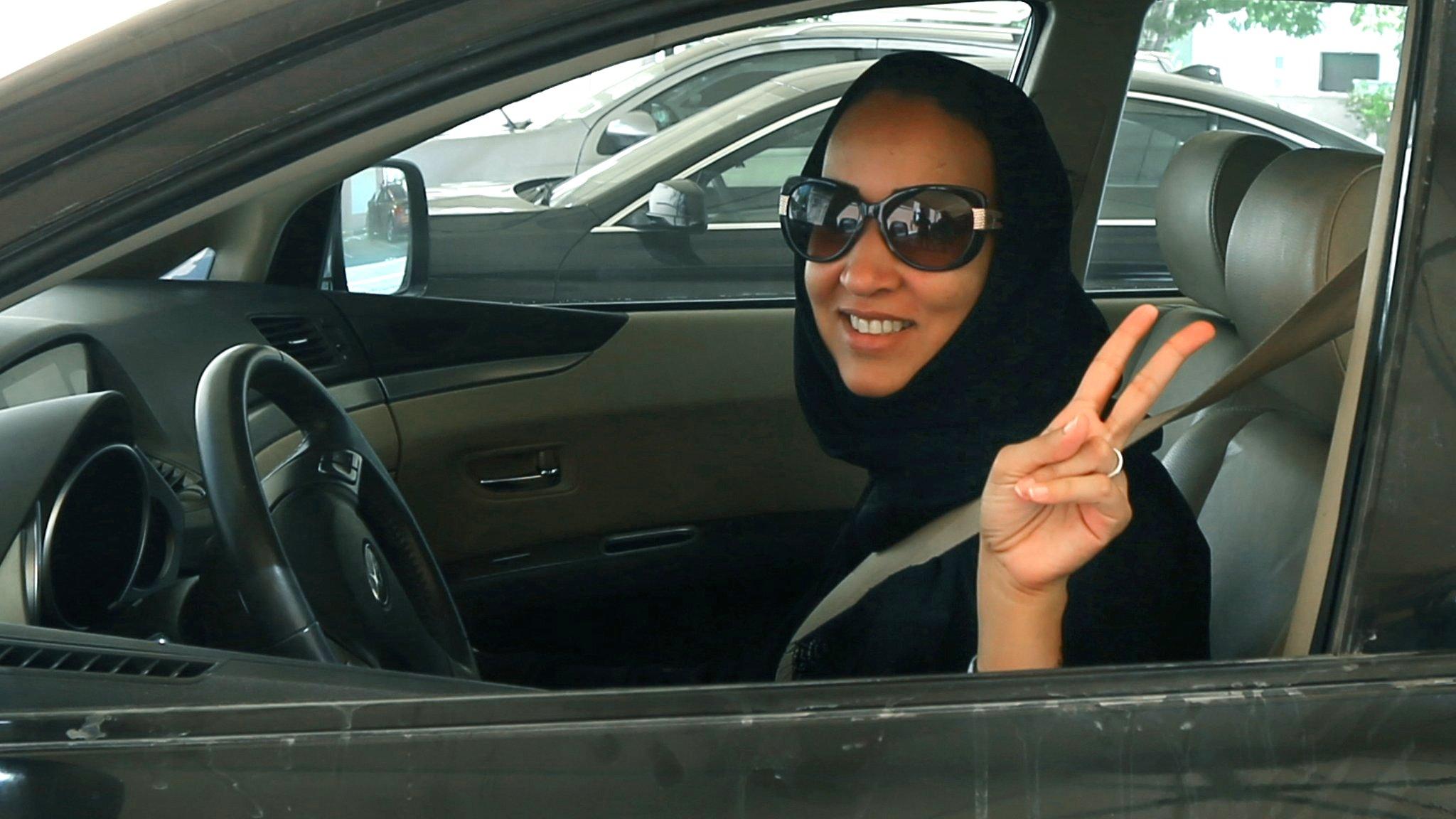
- Published3 December 2014

- Published8 March 2016

- Published28 January 2015
